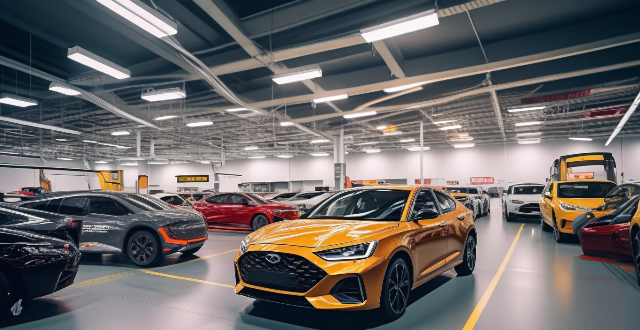The COVID-19 pandemic has significantly impacted the car industry, leading to production halts, supply chain disruptions, a decline in sales, and an acceleration of digital transformation. The industry has also seen a renewed focus on health and safety features in vehicles, as well as a continued shift towards electric vehicles. Despite these challenges, the changes brought about by the pandemic may ultimately benefit the industry in the long run.

The Impact of COVID-19 on the Car Industry
The COVID-19 pandemic has had a profound impact on various industries around the world, and the car industry is no exception. Let's delve into the details of how this global crisis has affected the sector.
Production Halts and Supply Chain Disruptions
One of the most immediate effects of the pandemic was the halt in production at many automotive plants. As governments imposed lockdowns to contain the virus, non-essential businesses, including car manufacturing facilities, were forced to close temporarily. This led to a decrease in production capacity and significant disruptions in the supply chain.
Key Points:
- Temporary Closures: Many factories shut down operations to comply with government regulations.
- Reduced Production Capacity: Even after reopening, plants operated at reduced capacities due to safety measures.
- Supply Chain Issues: Disruptions in global trade resulted in shortages of critical components like electronic chips.
Sales Decline and Digital Transformation
The pandemic also caused a decline in car sales as consumers faced economic uncertainty and restricted movement. However, it accelerated the digital transformation of the industry, with more customers turning to online platforms for their car purchasing needs.
Key Points:
- Economic Uncertainty: Job losses and income reductions made people hesitant to make large purchases.
- Online Sales: Dealerships shifted towards virtual tours and online transactions to adapt to changing consumer behavior.
- Digital Tools: Manufacturers introduced digital showrooms and augmented reality experiences to engage buyers remotely.
R&D Focus on Health and Safety
In response to the pandemic, research and development efforts within the car industry have increasingly focused on enhancing health and safety features in vehicles. This includes improvements in air filtration systems and touchless interfaces.
Key Points:
- Air Filtration: Advanced air filtration systems aim to filter out airborne contaminants effectively.
- Touchless Controls: Voice commands and motion sensors reduce the need for physical contact with shared surfaces.
- Sanitization Features: Some manufacturers are exploring built-in sanitization systems for added peace of mind.
Shift Towards Electric Vehicles
Despite challenges, the pandemic has not deterred the ongoing trend towards electric vehicles (EVs). Governments worldwide continue to support the transition from traditional combustion engines to electric powertrains through incentives and regulations.
Key Points:
- Government Incentives: Tax breaks and subsidies encourage both manufacturers and consumers to adopt EVs.
- Regulatory Pressure: Emission standards force automakers to prioritize cleaner technologies.
- Consumer Awareness: Growing environmental consciousness among buyers drives demand for eco-friendly options.
In conclusion, while the COVID-19 pandemic has presented numerous challenges for the car industry, it has also catalyzed changes that may prove beneficial in the long run, such as a push towards digital sales channels and a renewed focus on health, safety, and sustainability in vehicle design.